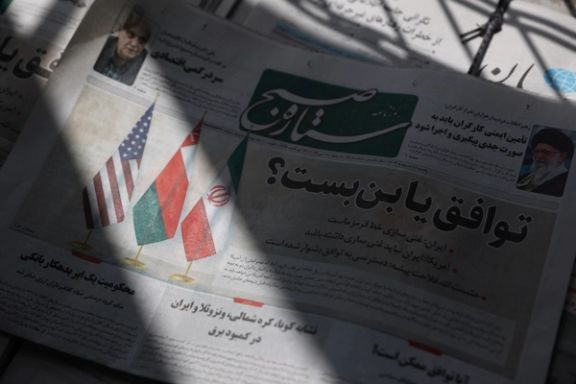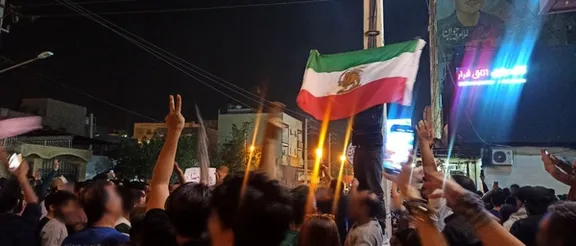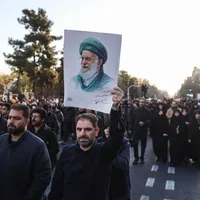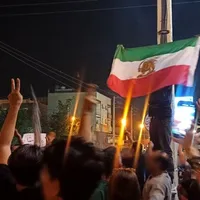The talks, facilitated by Omani officials and held behind closed doors in Muscat, come amid escalating rhetoric from both capitals and ahead of a high-stakes Middle East trip by US President Donald Trump.
Before departing for Muscat, Iranian Foreign Minister Abbas Araghchi said Tehran had submitted a proposal intended to reassure the international community of the peaceful nature of its nuclear activities. He warned, however, that the talks would fail if the United States continues to push beyond nuclear weapon-related commitments.
“If demands exceed assurances against nuclear weapons, the talks could stall,” Araghchi told reporters in Tehran. “We hope the other side comes with a clear negotiating logic. Talks should remain at the table, not in the press.”
He added, "Iran has well-known positions based on clear principles... We hope to reach a decisive stance in Sunday's meeting.”
Araghchi also accused the United States of adopting contradictory positions. “There are actors pushing for conflict—we understand this, but it is their problem,” he said. “If there are concerns, we are ready to build trust.”
The latest discussions follow weeks of diplomatic shuttle visits and were initially scheduled to take place in Rome on May 3 but were postponed for logistical reasons.
Iran has emphasized that its delegation is operating “in accordance with directives and frameworks issued by the country’s decision-making hierarchy,” according to Foreign Ministry spokesman Esmail Baghaei.
“The team is committed to preserving Iran’s valuable achievements in peaceful nuclear energy while pursuing the removal of unjust economic sanctions,” he said.
Tensions have mounted in recent days following comments by US envoy Steven Witkoff, who told Breitbart News last week that Washington's red line remains “no enrichment,” effectively calling for the dismantling of Iran’s nuclear infrastructure in Natanz, Fordow, and Isfahan.
Iranian state media and outlets affiliated with the Islamic Revolutionary Guard Corps (IRGC) reacted sharply to Witkoff’s remarks. The hardline Javan newspaper dismissed them as coercive, saying: “This is no longer called negotiation, it’s a stick.”
A member of Iran’s negotiating team told Lebanon’s Al Mayadeen network that Tehran would walk away if the US deviates from previously agreed frameworks.
A separate source quoted by Iraq’s Baghdad Al-Youm said the talks could “fail before they even begin” if Washington refuses to acknowledge Iran’s right to peaceful uranium enrichment.
Iran, which has consistently maintained that its nuclear program is peaceful, says it will not relinquish its enrichment capabilities. “The blood of our nuclear scientists has been shed for enrichment. This right is not negotiable,” Araghchi said before leaving for Muscat on Sunday.
Iran has accelerated its enrichment activities since 2019, exceeding limits set under the 2015 nuclear deal, which the US exited unilaterally in 2018. The UN nuclear watchdog has confirmed Iran’s enrichment of uranium to levels approaching weapons-grade, a move Tehran says is reversible if sanctions are lifted and credible guarantees are provided.
Trump has signaled openness to a diplomatic resolution but also warned of potential military action if diplomacy fails.
Trump is scheduled to visit Saudi Arabia, Qatar, and the United Arab Emirates from May 13 to 16. Analysts say the outcome of the Muscat talks could influence the trajectory of regional diplomacy and the future of Iran-US engagement.






